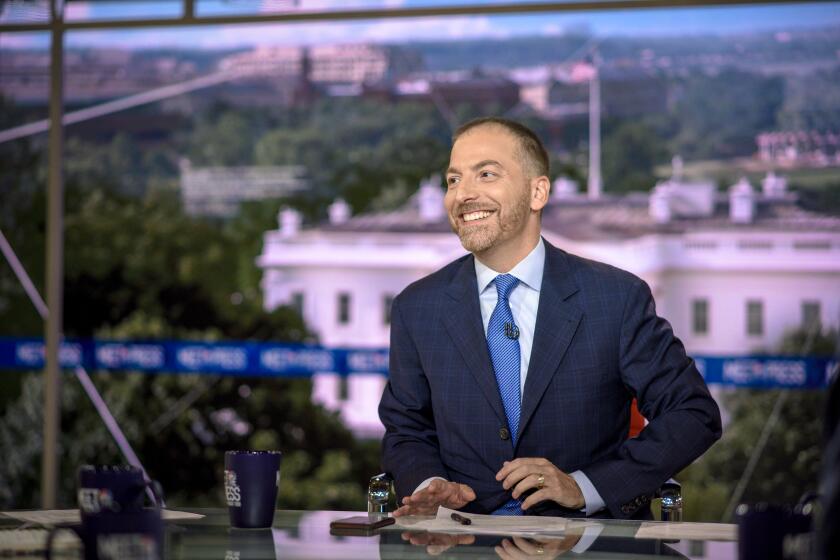County GOP’s Ideological Spat Isn’t Just ‘Local’
- Share via
When the late Speaker of the House Thomas P. “Tip” O’Neill said “all politics is local,” he wasn’t talking about the local Republican Party. The desire to move the local party central committee toward more moderate positions on social issues such as abortion, gays and guns is motivated at least as much by national politics as it is by local issues. It is as much a desire to win back the White House and hold control of the Senate and the House as a desire by local developers to make it easier to pass tax increases, as has been alleged.
The Republican Party remains the dominant party in Orange County and will for the foreseeable future. Republicans occupy five of Orange County’s six congressional seats, six of seven of the Assembly seats, three of four state Senate seats, five of five seats on the Board of Supervisors, and the bulk of city council and school board seats. In Orange County, there are over 200,000 more registered Republicans than there are registered Democrats.
But the real power lies in Sacramento and Washington, and there the picture changes dramatically. Democrats control the governorship, the state Senate and the Assembly; most of the other partisan offices in the executive branch; both U.S. Senate seats; and the majority of the congressional delegation.
Democrats outnumber Republicans approximately 47% to 35% in number of registered voters in California. Most important, Democrats will have the upper hand when redistricting takes place after the 2000 census. For those Rich White Males who want power and influence in the political process, Sacramento is dead.
That leaves Washington. There, the picture is slightly better. Republicans hold the Senate 55-45. But 19 Republican Senate seats are up versus only 14 for the Democrats. If the Democrats hold the White House and pick up five seats, they will control the Senate. In the House, the Democrats need a net gain of just five seats to capture it from the Republicans.
Again, the key is the White House. That is why all eyes are on George W. Bush’s floundering campaign. Sen. John McCain beat Bush in New Hampshire by a whopping 19 points. Other polls show McCain gaining strength in South Carolina. In California, a recent Field poll showed that McCain had cut Bush’s lead among California Republicans in half.
That’s why there is a pincer movement to topple “old-guard” county GOP Chairman Tom Fuentes by the Republicans for New Directions and the New Majority Committee, many of whose members, such as George Argyros, are among Bush’s most generous supporters. They’re covering their national bets with local moves.
The reform-minded Republicans point to data that suggest steady erosion of party support by voters. Republican registration has dropped 5.3% in the 1990s--from 55.2 to 49.9%. The percentage of Democrats also declined, but only by 2%. Of the 137,102 new voters who registered in the county since 1990, twice as many registered as Democrats (13%) than as Republicans (6%). A whopping 80% registered independent.
As returns from New Hampshire vividly demonstrate, candidates need to attract voters from beyond their core supporters to win. To win races in a heterogeneous electorate, parties must bring a broad coalition of interests together. Reformers argue that such tolerance is not present in the ideologically rigid central committee, and they want a more inclusive party, one that is responsive to Orange County’s changing demographics. They want to attract Latinos and working people and do not want to alienate gays. They decry the so-called litmus test on abortion that is applied to prospective candidates and the demonizing of those who simply disagree. The failed candidacies of Alan Keyes, Pat Buchanan and Gary Bauer show, they argue, that the message that the nation is in a moral crisis has little traction with voters.
At the center of the battle is socially conservative local chairman Fuentes. To his supporters, Fuentes is a forceful and effective leader with a remarkable track record. To his opponents, he is the political equivalent of Col. Kurtz from the movie “Apocalypse Now”--arrogant, abrasive, intimidating and someone who was once effective but whose tactics are hurting the party.
Some people think it is foolish for the party to be squabbling during a presidential election. Others argue that changing the leadership and direction of the central committee will take time and that the first fitful steps taken last year by Republicans for New Directions must be built upon.
The reformers believe their actions will strengthen the party by broadening its base for November and thereby contributing to a Bush victory, which is what this “local” crisis is really all about.
More to Read
Get the L.A. Times Politics newsletter
Deeply reported insights into legislation, politics and policy from Sacramento, Washington and beyond. In your inbox three times per week.
You may occasionally receive promotional content from the Los Angeles Times.










